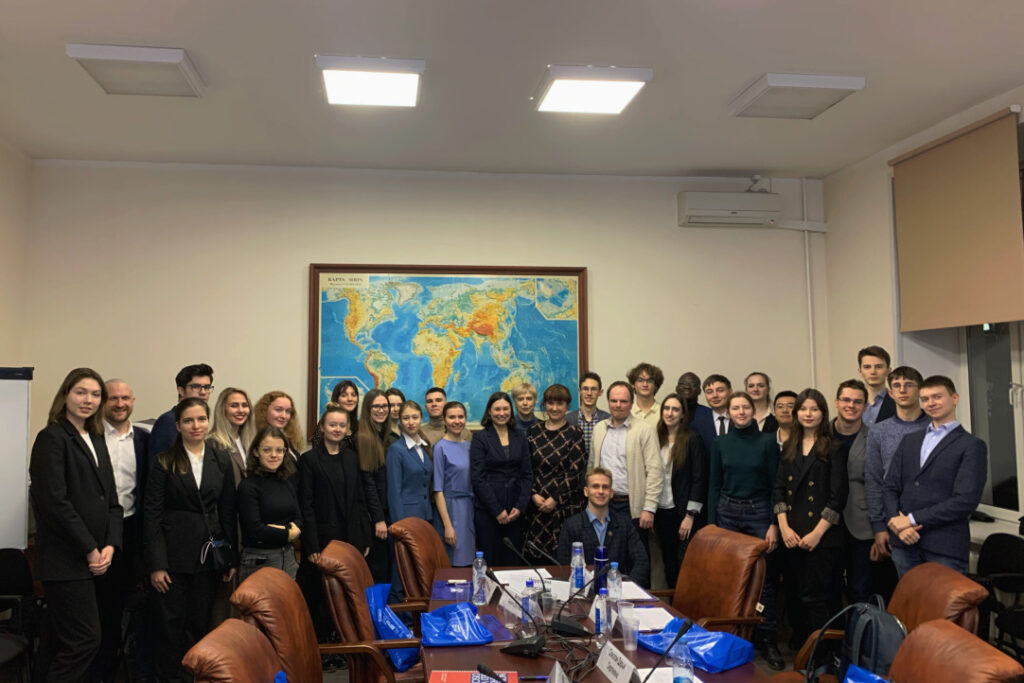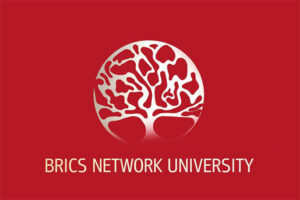Agreement Boosts Academic Mobility Across BRICS Borders
BRICS, 25 Sep 2023
University World News | BRICS Info Portal - TRANSCEND Media Service
22 Sep 2023 – BRICS countries, a grouping of emerging economies, agreed to facilitate the recognition of academic qualifications among members to ensure the mobility of skilled professionals, academics and students.
This emerged during a summit held from 22-24 August 2023 in Sandton, Johannesburg, South Africa. The group consists of Brazil, Russia, India, China and South Africa. The theme of the 15th summit was ‘BRICS and Africa: Partnership for mutually accelerated growth, sustainable development and inclusive multilateralism’.
BRICS countries are perceived as seeking to bolster their geopolitical power to counter the often US-led West on economic and political issues. The bloc also agreed to grant membership to six other countries: Argentina, Egypt, Ethiopia, Iran, Saudi Arabia and the United Arab Emirates from 1 January 2024.
Chinese President Xi Jinping, Brazil’s President Luiz Inácio Lula da Silva, Indian Prime Minister Narendra Modi and South Africa’s President Cyril Ramaphosa attended the summit in person, while Russia’s President, Vladimir Putin, participated virtually after an International Criminal Court arrest warrant for him over the war in Ukraine complicated his travelling to South Africa.
Following the meeting, the group issued a declaration touching on educational, political, economic, security and cultural matters.
“We support the principle of facilitating mutual recognition of academic qualifications among BRICS countries to ensure the mobility of skilled professionals, academics and students and recognition of qualifications obtained in each other’s countries, subject to compliance with applicable domestic laws,” according to the Johannesburg II Declaration.
“We welcome concrete proposals made during the 10th meeting of BRICS Ministers of Education focusing on critical areas in education and training such as entrepreneurship development, skills for the changing world, out-of-school youth, climate change, labour market intelligence, early childhood development and university global ranking.”
TVET embraced
The document states that the member countries “appreciate the progress on education and technical and vocational education and training (TVET) cooperation, in particular, the operationalisation of the BRICS TVET Cooperation Alliance which focuses on strengthening communication and dialogue and early finalisation of the Charter of the BRICS TVET Cooperation Alliance thereby promoting substantial cooperation in TVET, integrating TVET with industry”.
The countries also committed themselves to strengthening skills exchanges and cooperation. They said they were embracing digital transformation in education and TVET as each BRICS country is domestically committed to ensuring education accessibility and equity and promoting the development of quality education.
The declaration said the countries recognise the value of the BRICS Academic Forum as a platform for deliberations and discussions that had resulted in BRICS academics leading on issues confronting members of the bloc.
This year, the academic forum met in Cape Town, South Africa from 14-18 May and the event took the form of a conference in which academics and researchers presented their research in various sessions. Last week’s summit also noted that the BRICS Think Tanks Council is celebrating 10 years of enhancing cooperation in research and capacity-building among the academic communities of BRICS countries.
The BRICS Academic Forum was established in 2009 while the BRICS Think Tanks Council was initiated in 2013 to enhance cooperation in research and capacity-building among academic communities of BRICS countries. The forum and think tank hold their meetings annually under the respective BRICS chairships.
Plans in the pipeline
During main summit, the bloc said that, throughout 2023, South Africa has been hosting BRICS Science Technology and Innovation (STI) Steering Committee meetings. It said South Africa hosted the 8th BRICS Young Scientist Forum and organised the 6th BRICS Young Innovator Prize.
“We commend the success of the BRICS STI Framework Programme in continuing to connect scientists through the funding of an impressive portfolio of research projects between BRICS countries,” the declaration reads.
“We recognise the progress achieved in the implementation of the BRICS Action Plan for Innovation Cooperation (2021-24). In this regard, we encourage further actions to be taken on initiatives such as the BRICS Techtransfer (the BRICS Centres for Technology Transfer) and the iBRICS Network (the dedicated BRICS innovation network).
“We also welcome more actions to be taken, especially by the BRICS STIEP (Science, Technology and Innovation Entrepreneurship Partnership) Working Group, in the field of innovation and entrepreneurship, for example, through support for the BRICS Incubation Training and Network, the BRICS Technology Transfer Training Programme, and the BRICS Startup Forum.”
The countries also underscored the importance of collaborating on biodiversity conservation research and intra-BRICS cooperation in human resource development on new technologies through the BRICS Centre for Industrial Competences (BCIC), BRICS PartNIR Innovation Centre and BRICS Startup Forum.
They said they were continuing discussions with the United Nations Industrial Development Organisation (UNIDO) about establishing the BCIC to jointly support the development of industry skills among the BRICS countries for the new industrial revolution.
The countries also said the United Nations Framework Convention on Climate Change and its Paris Agreement must be implemented to enhance low-cost climate technology transfer and capacity.
They said they were supporting the BRICS Virtual Vaccine Research and Development Centre as part of efforts to improve their collective capacity for global pandemic prevention, preparedness and response.
Commitment to digital transformation
“We agree to explore opportunities on BRICS digital education cooperative mechanisms, hold dialogues on digital education policies, share digital educational resources, build smart education systems and jointly promote the digital transformation of education in BRICS countries and to develop a sustainable education by strengthening the cooperation within BRICS Network University and other institution-to-institution initiatives in this area, including the BRICS University League,” the countries said in their declaration.
“We welcome the BRICS Network University International Governing Board consideration to expand membership of the BRICS Network University to include more universities from the BRICS countries.”
Go to Original – infobrics.org
Tags: BRICS, BRICS Network University, Cooperation, Education
DISCLAIMER: The statements, views and opinions expressed in pieces republished here are solely those of the authors and do not necessarily represent those of TMS. In accordance with title 17 U.S.C. section 107, this material is distributed without profit to those who have expressed a prior interest in receiving the included information for research and educational purposes. TMS has no affiliation whatsoever with the originator of this article nor is TMS endorsed or sponsored by the originator. “GO TO ORIGINAL” links are provided as a convenience to our readers and allow for verification of authenticity. However, as originating pages are often updated by their originating host sites, the versions posted may not match the versions our readers view when clicking the “GO TO ORIGINAL” links. This site contains copyrighted material the use of which has not always been specifically authorized by the copyright owner. We are making such material available in our efforts to advance understanding of environmental, political, human rights, economic, democracy, scientific, and social justice issues, etc. We believe this constitutes a ‘fair use’ of any such copyrighted material as provided for in section 107 of the US Copyright Law. In accordance with Title 17 U.S.C. Section 107, the material on this site is distributed without profit to those who have expressed a prior interest in receiving the included information for research and educational purposes. For more information go to: http://www.law.cornell.edu/uscode/17/107.shtml. If you wish to use copyrighted material from this site for purposes of your own that go beyond ‘fair use’, you must obtain permission from the copyright owner.


